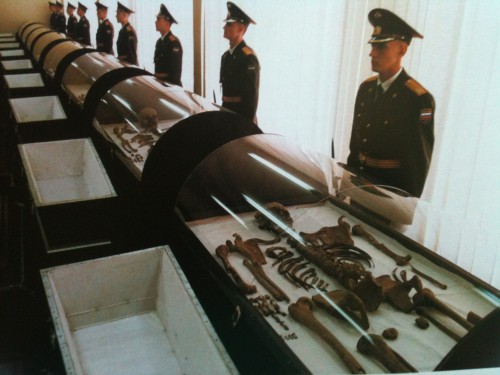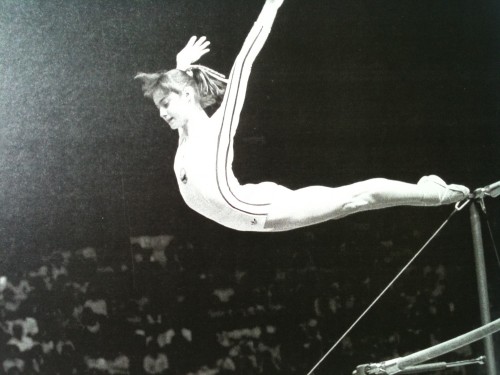Book + Beer: Murakami and Flat12
Cats. Clinical sex. Whipping up a quick miso soup. Music. Two fingers of bourbon before you go to bed. Psychic teenagers and the Sheep Man. Wells and tunnels. A quest. Death and loss. You know the material. Who in the fuck even reads Murakami? Go ahead, take my Indie Card away. (It wasn’t doing much for me anyway, expect for the 10% discount on skinny eyeglasses.) Sometimes I’m just in the mood. A sort of literary sorbet. Yo, H, how did you get into writing?
In April 1978, I was watching a baseball game in the Jingu Stadium in Tokyo, the sun was shining, I was drinking a beer. And when Dave Hilton of the Yakult Swallows made a perfect hit, at that instant I knew I was going to write a novel.
Oh fuck off, dude.
As someone here said once, Murakami can really write about food. And drinking beer.
Last night I was at this reading In Indianapolis and had several Flat 12 Half Cycle IPAs. The Half Cycle is so named due to its blending of single and double IPA characteristics. Extremely hoppy! Made dry hopped with a pound of high alpha American hops in every barrel! (You are allowed to use three exclamation marks your entire writing life, and I just used two.) Shit. I could feel the alcohol fluttering through my mouth, into brain, fluttering past brain, into ceiling. I felt like a tube. The ceiling was golden.
A Review of Your Review: Ben Mirov Reviews Jeff Gordinier’s Review of Chris Martin’s BECOMING WEATHER
 My friend Amy Lawless showed me this review of Becoming Weather by Chris Martin in the New York Times (scroll to the bottom of the article). Here is my review of the review, beginning with an excerpt from the review:
My friend Amy Lawless showed me this review of Becoming Weather by Chris Martin in the New York Times (scroll to the bottom of the article). Here is my review of the review, beginning with an excerpt from the review:
“No, the author of “Becoming Weather” is not the same Chris Martin who is the frontman of Coldplay and the husband of Gwyneth Paltrow. But it’s easy to see how you might leap to that assumption, because what you often find here are the kind of well-intentioned ruminations — “The people I love / lack something sufficient / for the violence of this world” (oh, buck up, people!) — that you might expect from a pop star who lets verse pour forth in his dressing room between bites of a vegan corn dog.”
I’m curious about your job and how you negotiate job vs. creativity–or if there’s a difference. Take my survey? I’ll post results/anonymous responses and conclusions when I get enough responses. A Job Worth Doing
Book + Beer: Dortmunder and Siberia
Possibly Ian Frazier’s Travels in Siberia is meta, as in many times I felt I was trapped within its 544 pages, or book as Siberia (a land mass that is 1/12th of the earth and 77% of Russia [though it contains only 25% of the population of that country]), a slog, лонг травел, shall we say, though—like the author to his subject—I did return again and again (Frazier labels his emotions about the region as “dread Russia-love.” The man takes 11 trips to Russia for this book!). I felt the attraction, and the dread. Let’s put it this way: I never felt exiled, per say, to the steppes of seemingly blizzardly white pages. But I was often exhausted. I shall return to this exhaustion after I crack open this bottle of beer: TSSST. My thirst and fatigue is one result of Frazier’s technique.

What beer? Great Lakes Brewing Company Dortmunder Gold. First thing, you can’t go blar with any Great Lakes beer. They make glow beer. Period. The Dortmunder Gold has a cool name (sounds sort of like a type of Salvia divinorum or maybe an office award ceremony or possibly an over/under shotgun manufactured in Belgium), a cool pedigree (multiple time world beer champion gold medalist), and a cool alcohol content, at a reasonable 5.8%. It will make your head go whoosh-whoosh, clang.
Technique of Ian Frazier? Let me digress: I’m at this July 4 party and this older gentleman sets down his beer (Coors) and tells us a story about how one day in the 1940’s, as a small kid, he strolled about his aunt’s farm and entered a dark, dusty barn and there was a body hanging from a rope tied to the rafters. Dangling there, a dead man. And so, as a kid, with an odd kid brain, he leaped up and swung back-n-forth on the dead man’s legs, like whippeeeeee! Like it was some game.
What is Experimental Literature? {Recap: Five Questions Vol. 2}
In case you missed any of them, below you’ll find links to each of the writers who participated in the second edition of my series of interviews aimed at expanding our understanding of experimental literature. (Also if you missed it, here is a link to the list of writers who participated in the first edition.)
Again, my thanks to everybody for participating. This has been a really insightful experience for me and hopefully for many of you. In the near future, I plan to do a post that addresses some of what I’ve learned from the series and how it has helped me to rethink my ideas about this nebulous category of “experimental literature.” At the moment, I’m unsure about a third edition. Only time will tell. But for now, I encourage you to visit or revisit the ocean of ideas presented by this impressive group of writers:
Rule of Threes

1. I’m reading Gail Mazur‘s new book of poems, Figures in a Landscape. The final two couplets of the title poem, an ekphrasis of the imagination:
If no one looks at us, do we or don’t we disappear?
The landscape would survive without us.When you’re in it, it’s not landscape
any more than the horizon’s a line you can stand on.
In this book I’m encountering the melancholy of a beach in winter, a poet microscoping her life and then telescoping her life, a poet who’s so careful with every word that sometimes I’m afraid I will break them just by thinking too hard.
2. The Summer 2011 issue of Sixth Finch is up and running. I just enjoyed Leora Fridman’s “Pistons,” which begins, “I tap out my knowledge of neatness on an old machine for / sending pigeons,” and flaps out into laser beam lunacy. The issue, wholly, invokes small town, prairie view summers. Potted plants of madness and bleeding cow heads abound.
3. When you wake up in the morning, do you have a song in your head? Mine is “Today” by the Smashing Pumpkins most days. This morning, though, it was “Proud to Be an American.” This is the morning after reading about TBHQ in our chicken McNuggets and how, according to the St. Pete times today, Tea Party members in Florida are tackling a new issue: manatees. “We cannot elevate nature above people,” explained Edna Mattos, 63, leader of the Citrus County Tea Party Patriots, in an interview. “That’s against the Bible and the Bill of Rights.” God forbid we limit our drunken boating excursions.
Innovative Residency Underway

The Palovista residency, located on a 1,920-acre ranch outside of Ojo Caliente, New Mexico, seeks to foster community among young innovative writers and artists, and to promote a mode of critical exchange that privileges writing/speaking to and with, rather than about. Throughout the residency, a number of visiting publishers and poets are hosted for readings and conversations with the younger writers. Visiting speakers in 2011 will include Mei-Mei Berssenbrugge, Charles Alexander, Cynthia Miller, Debra di Blasi, Evan Lavender-Smith, Carmen Gimenez Smith, Stanley Crawford, and Miriam Sagan. All events are open to the public. Residency operations are funded by the Junior Fellows Prize from the Kelly Writers House.
Co-directors: Leo Genji Amino & Daisy Atterbury. Participants: Natalie Jacoby, Benny Lichtner, Tamar Nachmany, Mugi Takei, Nicholas Taylor, Valeria Tsygankova, and Zachary Valdez.
You can follow the readings / writings / productions / performances of the Palovista Residency here from July 10-24, 2011.
I bet you remember the first person who encouraged your writing. (You probably want to thank them, or kill them.) I bet you remember the first person who discouraged your writing (or maybe even the writing life).
We like stories. Do tell.
Hi I want to talk about influence a little bit

I read this post the other day over at Montevidayo. It’s about influence. It’s not terribly long, so you can read it if you want, but I’m going to focus on Joyelle’s opening sentences, the post’s premise:
I want to begin by suggesting my discomfort with the conventions of discussing literary influence. I want to suggest that influence need not come from literary forebears, elders, teachers, or even people. For me this notion of influence, regardless of the gender of the participants, is too close to patrilineage, which bothers me for three reasons: its method of conserving property and wealth, ownership of originality; its copying over of heterosexist, male dominated bloodlines and the reproductive futurism that goes with it; and its commitment to linear notions of temporality—that what comes before causes what comes after, and that the most important thing is to move forward in time. I find all these structures suffocating and confining. I think we’re all conceptually limited by the unexamined assumptions about temporality, property, gender, sexuality, wealth and inheritance implicit in most discussions of literary influence, regardless of the gender of the writers under discussion.



